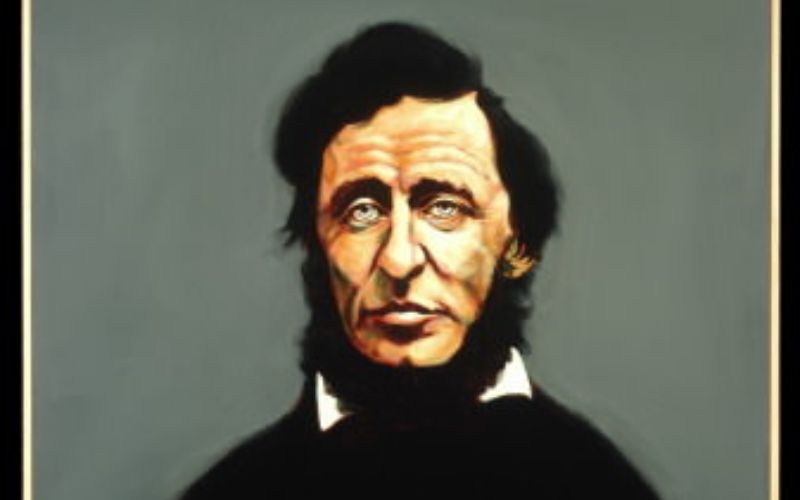Naturalist, Writer, Social Critic (1817-1862)
The law will never make men free; it is men who have got to make the law free.
Additional Quotes by Henry David Thoreau
Books are the carriers of civilization. Without books, history is silent, literature dumb, science crippled, thought and speculation at a standstill. I think that there is nothing, not even crime, more opposed to poetry, to philosophy, ay, to life itself than this incessant business.
Go confidently in the direction of your dreams! Live the life you've imagined. As you simplify your life, the laws of the universe will be simpler.
However mean your life is, meet it and live it: do not shun it and call it hard names. Cultivate poverty like a garden herb, like sage. Do not trouble yourself much to get new things, whether clothes or friends. Things do not change, we change. Sell your clothes and keep your thoughts. God will see that you do want society.
It is never too late to give up your prejudices.
Men are born to succeed, not fail.
Any fool can make a rule, and any fool will mind it.
Biography
Henry David Thoreau was born in Concord, Massachusetts. He graduated from Harvard at the age of 20 and spent the next few years teaching with his brother John in their private school. After John's early death in 1842, Henry pledged to write a memorial tribute to him based on a river excursion they had made together in 1839. The necessity of earning a living prevented him from writing until he moved to Walden Pond in 1845, built his cabin and began the most famous experiment in solitary living in American history. A Week on the Concord and Merrimack Rivers (1849), the tribute to John, was written during the 26 months Thoreau spent at Walden and went virtually unnoticed and unsold; but the notes and journal entries he kept during that time later were transformed into the timeless text of Walden (1854).
Walden can be read as natural history or escapist literature, but central to its lasting power is Thoreau's transcendental philosophy that emphasizes the moral laws of nature born within us. Walden is Thoreau's account of how, by simplifying life and observing nature closely, free from society's material distractions, one may achieve understanding of one's true nature.
Walden and the essay Civil Disobedience are rich with observations, such as the one quoted above, that for 150 years have influenced the thinking of millions, including such readers as Mahatma Gandhi and Martin Luther King, Jr. In the conclusion of Civil Disobedience Thoreau stresses the importance of the individual citizen: There will never be a really free and enlightened State until the State comes to recognize the individual as a higher and independent power, from which all its own power and authority are derived, and treats him accordingly. I please myself with imagining a State at last which can afford to be just to all men, and to treat the individual with respect as a neighbor.

